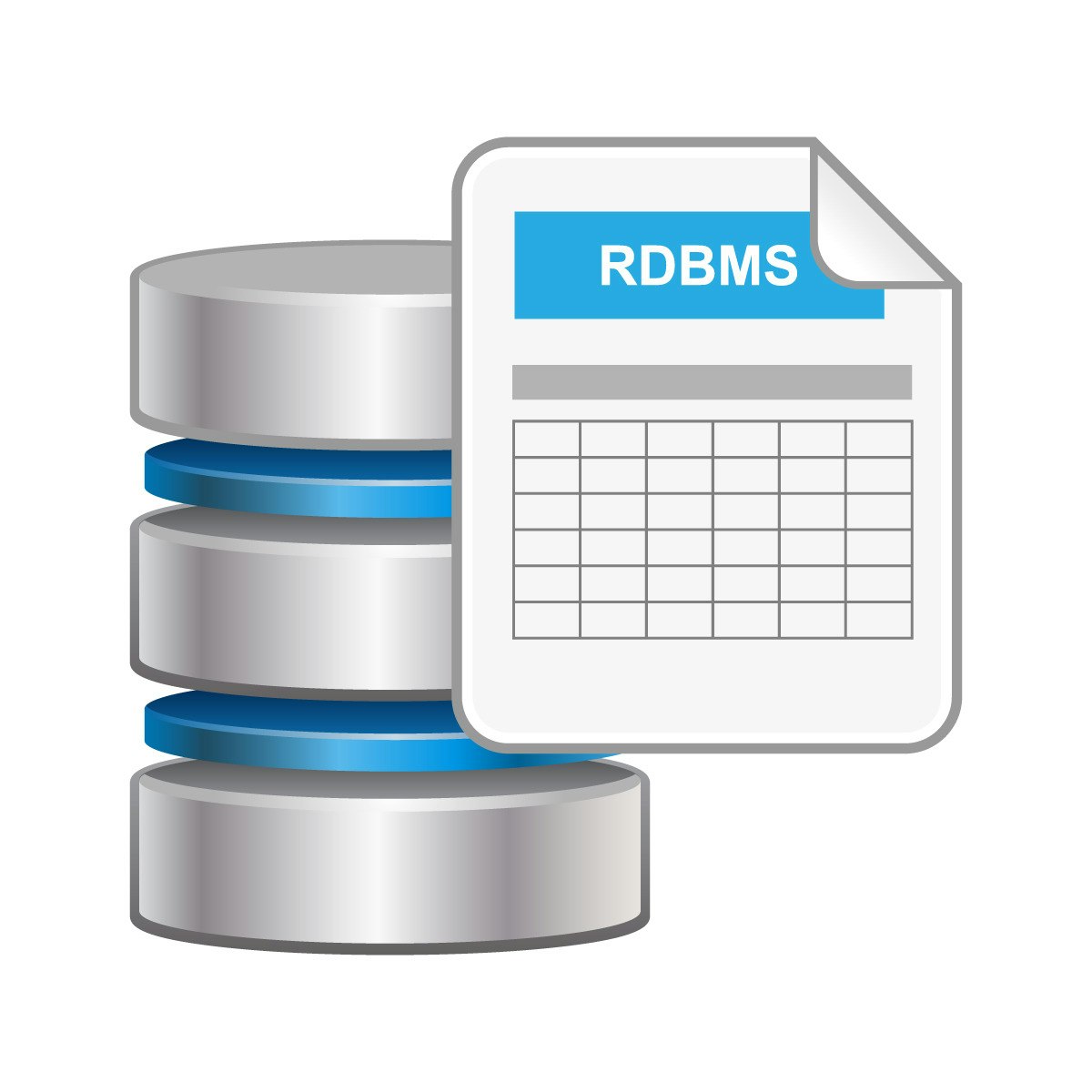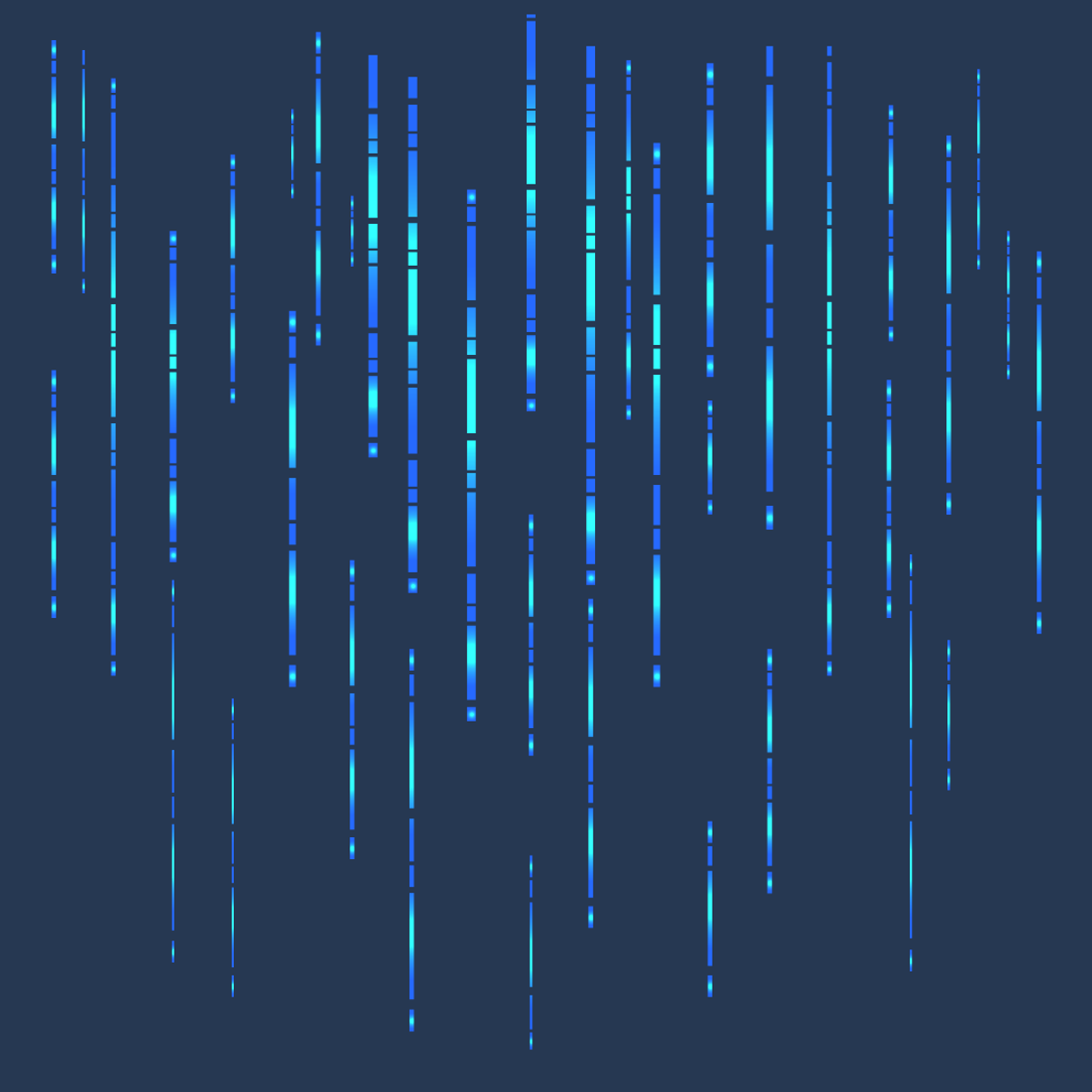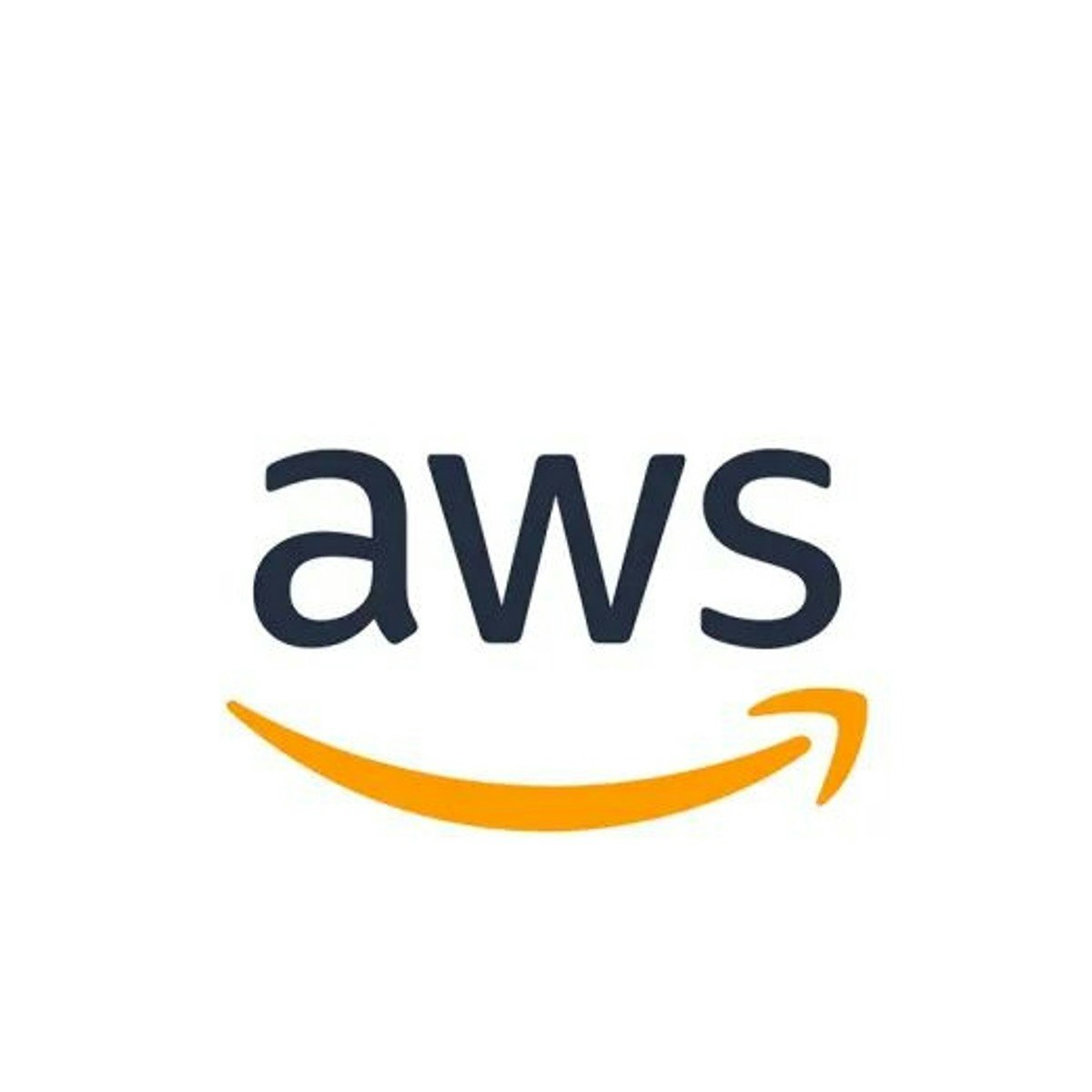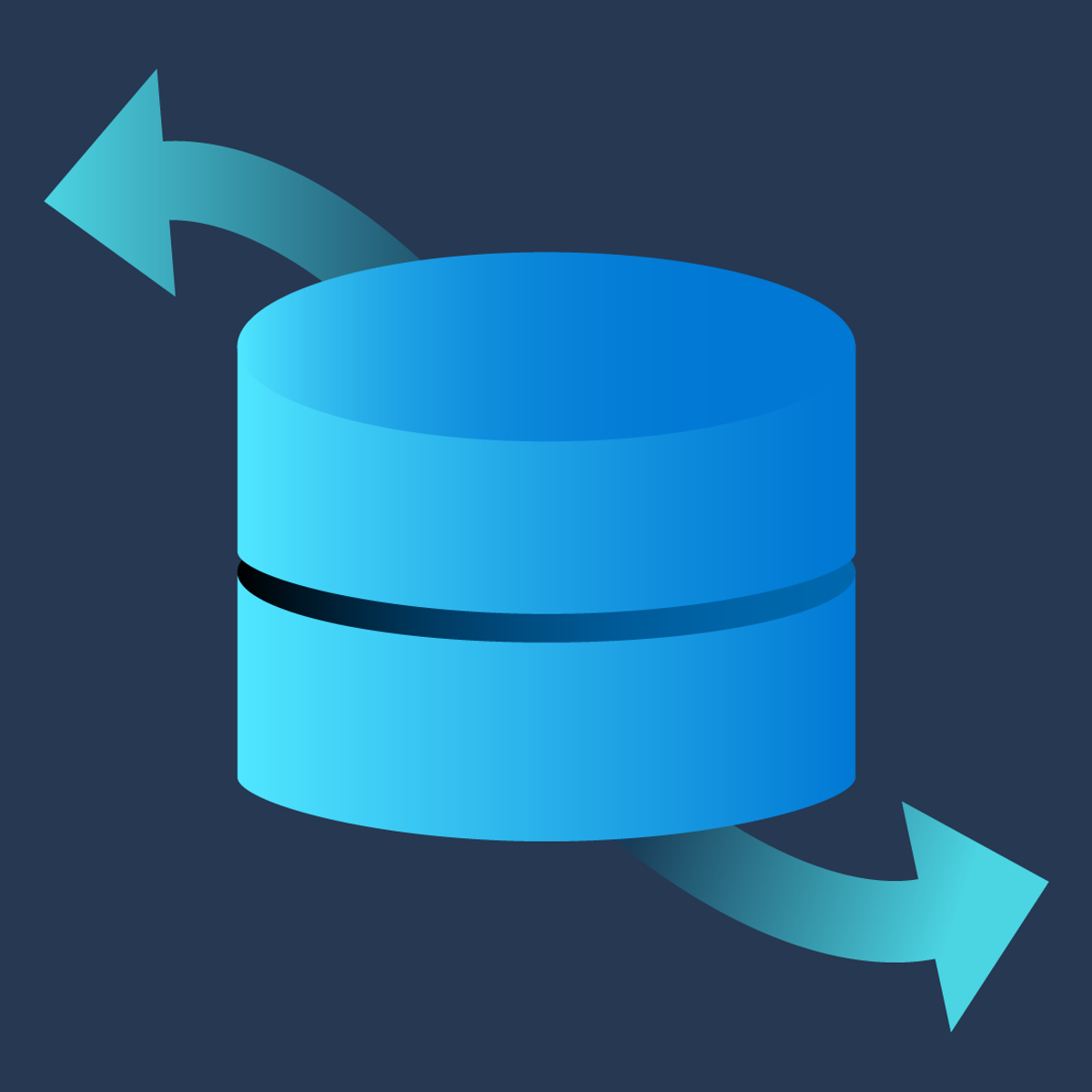Database Developer
Comprendre le Rôle et les Opportunités d'un Développeur de Bases de Données
Un développeur de bases de données est un professionnel de l'informatique spécialisé dans la création, la maintenance et l'optimisation des systèmes de gestion de bases de données (SGBD). Ce rôle est crucial pour assurer que les données d'une organisation sont stockées de manière sécurisée, efficace et accessible. Les développeurs de bases de données conçoivent la structure des bases de données, écrivent du code pour manipuler les données et collaborent souvent avec d'autres équipes pour répondre aux besoins en information de l'entreprise.
Travailler en tant que développeur de bases de données peut être particulièrement stimulant. Vous aurez l'occasion de résoudre des problèmes complexes liés à la performance des requêtes et à l'intégrité des données. De plus, ce rôle offre la possibilité de travailler avec des technologies en constante évolution, des bases de données relationnelles traditionnelles aux solutions NoSQL émergentes. La satisfaction de construire des systèmes robustes qui soutiennent des applications critiques est une autre facette attrayante de cette carrière.
Introduction au métier de Développeur de bases de données
Le développeur de bases de données joue un rôle essentiel dans le cycle de vie des données au sein d'une organisation. Il est responsable de la conception logique et physique des bases de données, de leur implémentation, ainsi que de la rédaction et de l'optimisation des requêtes. Ce professionnel s'assure que les données sont structurées de manière à faciliter leur accès et leur analyse, tout en garantissant leur sécurité et leur intégrité.
Les tâches quotidiennes peuvent varier considérablement, allant de la modélisation de nouvelles structures de données à la migration de données existantes, en passant par le débogage de procédures stockées complexes. La collaboration avec les analystes de données, les développeurs d'applications et les administrateurs système est fréquente pour s'assurer que la base de données répond aux besoins de tous les utilisateurs.
Définition du rôle et responsabilités clés
Le développeur de bases de données est chargé de concevoir, développer, tester et déployer des bases de données. Cela inclut la création de schémas de base de données, de tables, de vues, d'index, de procédures stockées et de fonctions. Une responsabilité majeure est d'assurer la performance optimale des requêtes et la fiabilité du système. Ils doivent également documenter leurs conceptions et leurs codes.
La sécurité des données est une autre préoccupation centrale. Les développeurs de bases de données implémentent des mesures pour protéger les données contre les accès non autorisés et les pertes. Ils peuvent aussi être impliqués dans la planification de la sauvegarde et de la récupération des données. La surveillance des performances et le dépannage des problèmes font également partie intégrante de leurs missions.
Enfin, le développeur doit se tenir informé des nouvelles technologies et des meilleures pratiques en matière de gestion de données. Cela peut impliquer l'évaluation de nouveaux SGBD ou l'apprentissage de nouveaux langages de requête pour répondre aux besoins changeants de l'entreprise.
Comparaison avec des rôles similaires
Il est fréquent de confondre le développeur de bases de données avec l'administrateur de bases de données (DBA). Bien que leurs rôles se chevauchent parfois, le DBA se concentre davantage sur la maintenance opérationnelle, la disponibilité, la sauvegarde et la sécurité de l'infrastructure de la base de données. Le développeur, lui, se concentre sur la conception et la création de la base de données et des objets qu'elle contient, ainsi que sur l'écriture du code d'accès aux données. Comparer les rôles de DBA et de développeur peut éclairer ces distinctions.
Un autre rôle proche est celui de l'architecte de données. L'architecte de données a une vision plus globale, définissant les standards et les principes de gestion des données à l'échelle de l'entreprise. Le développeur de bases de données travaille ensuite dans le cadre défini par l'architecte pour implémenter des solutions spécifiques.
L'ingénieur de données (Data Engineer) est également un rôle connexe, souvent plus axé sur la construction de pipelines de données pour collecter, transformer et charger de grandes quantités de données (ETL/ELT). Le développeur de bases de données peut collaborer avec des ingénieurs de données, en particulier dans les environnements Big Data.
Secteurs d'application
Les développeurs de bases de données sont recherchés dans une multitude de secteurs. Le secteur financier, par exemple, repose heavily sur des bases de données robustes pour gérer les transactions, les portefeuilles clients et analyser les risques. Les institutions bancaires et les compagnies d'assurance emploient de nombreux développeurs pour maintenir et faire évoluer leurs systèmes critiques.
Dans le domaine de la santé, les bases de données gèrent les dossiers médicaux des patients, les résultats de recherche et les informations relatives aux essais cliniques. La précision et la sécurité sont primordiales, rendant le rôle du développeur essentiel. Les entreprises technologiques, des startups aux géants du web, ont également un besoin constant de développeurs de bases de données pour leurs applications, leurs plateformes de commerce électronique et leurs services cloud.
D'autres secteurs comme le commerce de détail, la logistique, l'éducation et même les organismes gouvernementaux dépendent fortement de bases de données bien conçues. Chaque secteur présente des défis uniques, offrant une variété d'opportunités pour les développeurs spécialisés. Vous pouvez explorer des cours liés à des secteurs spécifiques sur OpenCourser Business ou OpenCourser Health & Medicine.
Compétences techniques requises
Pour exceller en tant que développeur de bases de données, un ensemble solide de compétences techniques est indispensable. Celles-ci vont de la maîtrise de langages spécifiques à la compréhension des concepts fondamentaux des systèmes de gestion de bases de données. Une bonne capacité d'analyse et de résolution de problèmes complète ce profil technique.
La capacité à traduire les besoins métier en modèles de données logiques et physiques est également cruciale. Cela implique une communication efficace avec les parties prenantes non techniques pour comprendre leurs exigences et leur expliquer les solutions proposées.
Maîtrise des langages et outils essentiels
Le langage SQL (Structured Query Language) est la pierre angulaire des compétences d'un développeur de bases de données. Une connaissance approfondie de SQL est nécessaire pour écrire des requêtes complexes, créer des procédures stockées, des déclencheurs et gérer les données. Des dialectes SQL spécifiques à certains SGBD comme T-SQL (Microsoft SQL Server) ou PL/SQL (Oracle) sont souvent requis.
Des langages de script comme Python ou Perl sont également utiles pour automatiser des tâches, manipuler des données ou interagir avec des API de bases de données. La familiarité avec des outils de modélisation de données (par exemple, ERwin, Lucidchart) et des environnements de développement intégrés (IDE) spécifiques aux bases de données (comme SQL Server Management Studio, Oracle SQL Developer, pgAdmin) est attendue.
Les cours suivants offrent une excellente introduction et un approfondissement des compétences en SQL et sur les outils associés. Ils couvrent les aspects fondamentaux et avancés, indispensables pour tout développeur de bases de données.
Pour ceux qui souhaitent approfondir leurs connaissances, ces ouvrages constituent des références précieuses.
Compréhension des SGBD relationnels et non relationnels
Une solide compréhension des Systèmes de Gestion de Bases de Données Relationnelles (SGBDR) est fondamentale. Cela inclut des systèmes populaires comme MySQL, PostgreSQL, Oracle Database, et Microsoft SQL Server. Il faut maîtriser les concepts de normalisation, d'indexation, de transactions ACID (Atomicité, Cohérence, Isolation, Durabilité) et de modélisation entité-association.
Avec l'avènement du Big Data et des applications web modernes, la connaissance des bases de données NoSQL (Not Only SQL) est devenue de plus en plus importante. Celles-ci incluent les bases de données orientées document (MongoDB, Couchbase), clé-valeur (Redis, DynamoDB), orientées colonnes (Cassandra, HBase) et orientées graphe (Neo4j, Amazon Neptune). Comprendre leurs cas d'usage, avantages et inconvénients respectifs est crucial.
Ces cours vous aideront à explorer le monde des bases de données relationnelles et NoSQL.
Gestion de la performance et de la sécurité des données
L'optimisation des performances est une compétence clé. Cela implique d'analyser les plans d'exécution des requêtes, de créer des index appropriés, de réécrire des requêtes inefficaces et de comprendre comment le SGBD gère les ressources. Des outils de profilage et de monitoring sont souvent utilisés pour identifier les goulots d'étranglement.
La sécurité des données englobe la protection contre les accès non autorisés, les injections SQL, et autres vulnérabilités. Les développeurs doivent savoir implémenter des mécanismes d'authentification et d'autorisation, chiffrer les données sensibles (au repos et en transit) et se conformer aux réglementations en vigueur comme le RGPD.
La compréhension des principes de sauvegarde et de récupération est également importante, bien que l'implémentation puisse relever davantage du DBA. Le développeur doit concevoir la base de données de manière à faciliter ces processus.
Les cours suivants se concentrent sur les aspects de performance et de sécurité.
Formation et parcours académique
Devenir développeur de bases de données implique généralement une formation en informatique ou dans un domaine connexe. Plusieurs voies éducatives peuvent mener à cette carrière, allant des diplômes universitaires aux certifications professionnelles, en passant par des formations spécialisées. L'auto-formation, soutenue par des cours de programmation en ligne et des projets personnels, joue également un rôle significatif.
Pour ceux qui envisagent une reconversion ou qui débutent, il est encourageant de savoir que la demande pour ces compétences est soutenue. Avec de la détermination et un plan d'apprentissage structuré, il est possible d'acquérir les connaissances nécessaires. N'oubliez pas que chaque expert a commencé quelque part, et que la persévérance est clé.
Diplômes universitaires pertinents
Un diplôme de niveau Bac+2/3, tel qu'un BTS SIO (Services Informatiques aux Organisations) option SLAM (Solutions Logicielles et Applications Métiers) ou un BUT Informatique, peut constituer une première porte d'entrée. Ces formations fournissent des bases solides en développement et en gestion de données.
Les diplômes de niveau Master (Bac+5) en informatique, avec une spécialisation en bases de données, ingénierie logicielle ou science des données, sont très appréciés par les employeurs, notamment pour des postes impliquant des responsabilités de conception plus complexes ou des évolutions vers des rôles d'architecte. Des écoles d'ingénieurs proposent également des cursus pertinents.
Ces parcours académiques traditionnels offrent un cadre structuré et une reconnaissance établie, mais ne sont pas les seules options. L'important est d'acquérir les compétences techniques fondamentales, quelle que soit la voie choisie. OpenCourser propose un guide pour apprenants qui peut vous aider à structurer votre parcours, même en dehors d'un cursus universitaire classique.
Certifications professionnelles reconnues
Les certifications professionnelles sont un excellent moyen de valider vos compétences et d'améliorer votre employabilité. Des fournisseurs majeurs de SGBD comme Oracle (Oracle Certified Professional - OCP), Microsoft (Microsoft Certified: Azure Database Administrator Associate, ou d'anciennes certifications comme MCSA: SQL Server) proposent des certifications reconnues mondialement.
D'autres certifications, axées sur des technologies spécifiques comme MongoDB (MongoDB Certified Developer Associate) ou des plateformes cloud (AWS Certified Database - Specialty, Google Cloud Professional Cloud Database Engineer), peuvent également être très valorisantes, surtout si vous visez des postes spécialisés.
Préparer une certification demande un investissement en temps et en étude, mais le retour sur investissement peut être significatif en termes de reconnaissance professionnelle et d'opportunités de carrière. De nombreux cours en ligne sont spécifiquement conçus pour préparer ces examens.
Rôle des cours en ligne et de l'auto-formation
Les plateformes de cours en ligne comme OpenCourser jouent un rôle crucial dans l'acquisition et la mise à jour des compétences pour les développeurs de bases de données. Elles offrent une flexibilité inégalée, permettant d'apprendre à son propre rythme et souvent à un coût inférieur à celui des formations traditionnelles. Que vous soyez étudiant cherchant à compléter votre cursus, professionnel en reconversion, ou développeur expérimenté souhaitant vous former sur une nouvelle technologie, les cours en ligne sont une ressource précieuse.
Vous pouvez trouver des cours couvrant tous les aspects du développement de bases de données, depuis les fondamentaux de SQL jusqu'aux SGBD NoSQL avancés, en passant par l'optimisation des performances et la sécurité. OpenCourser vous permet de rechercher parmi des milliers de cours et de comparer les options pour trouver celles qui correspondent le mieux à vos besoins et à votre niveau.
L'auto-formation, soutenue par ces ressources, est particulièrement pertinente dans un domaine technologique qui évolue rapidement. S'engager dans des projets personnels, contribuer à des projets open-source ou participer à des défis de codage sont d'excellents moyens de mettre en pratique les connaissances acquises et de construire un portfolio solide. Pour ceux qui débutent, cela peut sembler intimidant, mais chaque petit projet complété est une étape vers la maîtrise.
Voici quelques cours qui peuvent vous aider à démarrer ou à approfondir vos connaissances de manière autonome :
Marché du travail et opportunités
Le marché du travail pour les développeurs de bases de données reste dynamique. Avec la croissance exponentielle des données générées par les entreprises et les particuliers, la nécessité de professionnels capables de gérer, d'analyser et de sécuriser ces informations est plus forte que jamais. Les opportunités existent dans de nombreux secteurs et pour des entreprises de toutes tailles.
Il est important pour les aspirants développeurs de se renseigner sur les tendances actuelles du marché, les compétences les plus demandées et les fourchettes salariales. Cela permet de mieux orienter sa formation et sa recherche d'emploi. Les plateformes d'emploi et les rapports sectoriels sont de bonnes sources d'information.
Analyse de la demande actuelle
La demande pour les développeurs de bases de données est soutenue, tant en France qu'à l'international. Les entreprises recherchent des profils maîtrisant les SGBDR classiques comme SQL Server, Oracle, MySQL et PostgreSQL, mais aussi de plus en plus des compétences sur les technologies NoSQL et les plateformes cloud (AWS, Azure, Google Cloud). Selon diverses analyses du marché de l'emploi IT, les rôles liés à la gestion et à l'exploitation des données figurent régulièrement parmi les plus recherchés. Vous pouvez consulter des rapports d'organismes comme l'APEC en France pour des données spécifiques au marché français.
Les compétences en matière de migration de bases de données vers le cloud, de sécurité des données (notamment en lien avec le RGPD) et d'optimisation des performances pour de grands volumes de données (Big Data) sont particulièrement prisées. La capacité à travailler en méthodologie Agile est également un atout.
Pour ceux qui entrent dans le domaine, il est encourageant de noter que même les postes juniors sont disponibles, bien que la concurrence puisse être forte. Un portfolio de projets personnels ou des contributions open-source peut faire la différence.
Des cours spécifiques sur les plateformes cloud peuvent grandement améliorer votre profil.
Échelles salariales et facteurs d'influence
Les salaires des développeurs de bases de données varient en fonction de plusieurs facteurs, notamment l'expérience, le niveau de compétence, la localisation géographique, la taille de l'entreprise et le secteur d'activité. En France, un développeur junior peut s'attendre à un salaire annuel brut allant de 35 000 € à 45 000 €. Avec quelques années d'expérience, ce salaire peut évoluer entre 45 000 € et 60 000 €. Les profils seniors ou experts, avec des compétences pointues sur des technologies recherchées, peuvent dépasser les 60 000 €, voire atteindre des rémunérations plus élevées, notamment en région parisienne ou dans des secteurs à forte valeur ajoutée.
Des sites comme Glassdoor ou Indeed peuvent fournir des estimations salariales basées sur des données collectées, mais il est toujours bon de croiser plusieurs sources. Le Bureau of Labor Statistics américain, par exemple, offre des perspectives pour le marché américain, qui peuvent donner une indication des tendances globales, bien que les chiffres ne soient pas directement transposables.
La maîtrise de technologies spécifiques (par exemple, des SGBD NoSQL populaires, des solutions cloud) ou des compétences en Big Data peuvent significativement influencer le salaire à la hausse. Les certifications professionnelles peuvent également jouer un rôle dans la négociation salariale.
Types d'entreprises qui recrutent
Les développeurs de bases de données sont recrutés par une grande variété d'entreprises. Les grandes entreprises de services numériques (ESN) ou sociétés de conseil sont d'importants recruteurs, proposant des missions variées chez différents clients. Les éditeurs de logiciels ont également besoin de ces compétences pour développer et maintenir les bases de données de leurs produits.
Les entreprises de tous les secteurs (banque, assurance, santé, e-commerce, industrie, etc.) ayant des besoins importants en gestion de données recrutent directement des développeurs de bases de données pour leurs équipes internes. Les startups technologiques, en particulier celles qui manipulent de grands volumes de données ou qui développent des applications innovantes, offrent également des opportunités intéressantes, souvent dans des environnements dynamiques et avec des technologies de pointe.
Enfin, le secteur public et les organismes de recherche peuvent aussi proposer des postes. Il est conseillé d'explorer les offres sur des plateformes généralistes et spécialisées, ainsi que de cibler directement les entreprises dont le domaine d'activité ou la culture vous attirent. Développer sa carrière implique de bien connaître le paysage des employeurs potentiels.
Évolution de carrière
La carrière d'un développeur de bases de données offre de nombreuses perspectives d'évolution. Avec l'expérience, il est possible de se diriger vers des postes à plus haute responsabilité technique, de se spécialiser dans des domaines pointus, ou encore d'évoluer vers des fonctions de management ou de conseil. La formation continue et la veille technologique sont essentielles pour saisir ces opportunités.
Pour ceux qui débutent, il est important de savoir que les premières années sont cruciales pour construire une base solide de compétences et d'expériences. Chaque projet est une occasion d'apprendre et de grandir professionnellement. Ne craignez pas de relever des défis, car ce sont eux qui forgent l'expertise.
Progression vers des postes seniors
Après plusieurs années d'expérience en tant que développeur de bases de données, une évolution naturelle est de devenir développeur senior. Ce rôle implique généralement une plus grande autonomie, la prise en charge de projets plus complexes, et souvent un rôle de mentorat auprès des développeurs plus juniors. Le développeur senior est attendu pour sa capacité à résoudre des problèmes ardus et à proposer des solutions techniques robustes et performantes.
Une autre voie d'évolution technique est le poste d'architecte de données ou d'architecte de bases de données. Ce rôle nécessite une vision stratégique de la gestion des données au sein de l'entreprise, la définition des standards, des modèles et des technologies à utiliser. Il requiert une excellente compréhension des enjeux métier et une forte expertise technique.
Des compétences en modélisation avancée et en conception de systèmes distribués sont souvent nécessaires pour ces postes.
Spécialisations possibles
Le domaine des bases de données est vaste et offre plusieurs possibilités de spécialisation. Le Big Data est un domaine en pleine expansion, nécessitant des compétences spécifiques sur des technologies comme Hadoop, Spark, et des bases de données NoSQL capables de gérer de très grands volumes de données. Les développeurs peuvent se spécialiser en tant qu'ingénieur Big Data.
Le Cloud Computing est une autre spécialisation majeure. De nombreuses entreprises migrent leurs bases de données vers des plateformes cloud comme AWS, Azure ou Google Cloud. Se spécialiser dans les services de bases de données cloud (comme Amazon RDS, Aurora, Azure SQL Database, Cloud Spanner) est un atout considérable sur le marché du travail.
D'autres spécialisations incluent l'informatique décisionnelle (Business Intelligence), où le développeur se concentre sur la conception d'entrepôts de données et de datamarts pour l'analyse et le reporting, ou encore la sécurité des bases de données, un domaine de plus en plus critique.
Transition vers le management ou le conseil
Pour les développeurs de bases de données ayant une appétence pour la gestion d'équipe et la stratégie, une évolution vers des postes de management est possible. Cela peut inclure des rôles de chef de projet technique, de responsable d'équipe de développement de bases de données, ou de directeur des systèmes d'information (DSI) dans des structures plus petites.
Le conseil est une autre voie pour les professionnels expérimentés. En tant que consultant en bases de données, vous pouvez intervenir auprès de différentes entreprises pour les aider à optimiser leurs systèmes, à choisir de nouvelles technologies, ou à résoudre des problèmes complexes. Cela demande d'excellentes compétences techniques, mais aussi de bonnes capacités de communication et d'analyse des besoins clients.
Ces transitions demandent souvent de développer des compétences managériales ou commerciales, en complément de l'expertise technique. Des formations en gestion de projet ou en communication peuvent être utiles.
Défis et tendances actuelles
Le métier de développeur de bases de données est en constante évolution, confronté à de nouveaux défis technologiques et réglementaires. Se tenir informé de ces tendances est crucial pour rester pertinent et efficace dans ce domaine. L'adaptabilité et la volonté d'apprendre continuellement sont des qualités essentielles.
Les entreprises cherchent constamment à exploiter au mieux leurs données, ce qui pousse à l'adoption de nouvelles architectures et de nouveaux outils. Comprendre ces dynamiques permet d'anticiper les besoins futurs et de conseiller au mieux les organisations.
Impact du cloud et des bases de données distribuées
Le Cloud Computing a profondément transformé la manière dont les bases de données sont gérées et déployées. Les services de bases de données managées (DBaaS) offerts par des fournisseurs comme AWS, Microsoft Azure et Google Cloud simplifient l'administration, la mise à l'échelle et la maintenance. Les développeurs doivent maîtriser ces environnements et comprendre les spécificités des bases de données cloud natives.
Les bases de données distribuées, conçues pour être réparties sur plusieurs serveurs ou sites géographiques, gagnent en popularité pour leur capacité à gérer de grands volumes de données et à offrir une haute disponibilité. Comprendre les concepts de distribution, de partitionnement, de réplication et de cohérence (par exemple, le théorème CAP) est de plus en plus important.
Cette évolution vers le cloud et les systèmes distribués impose aux développeurs de nouvelles compétences en matière d'architecture, de sécurité et de gestion des coûts dans des environnements virtualisés. Des rapports d'analystes comme Gartner ou Forrester suivent de près ces évolutions et peuvent fournir des éclairages précieux.
Des cours comme celui-ci peuvent vous aider à naviguer dans le paysage du cloud.
Conformité réglementaire et cybersécurité
La conformité réglementaire, en particulier le Règlement Général sur la Protection des Données (RGPD) en Europe, a un impact significatif sur la conception et la gestion des bases de données. Les développeurs doivent s'assurer que les systèmes respectent les principes de protection des données dès la conception ("privacy by design"), de minimisation des données, et garantissent les droits des individus (accès, rectification, suppression).
La cybersécurité est une préoccupation majeure. Les bases de données sont des cibles privilégiées pour les cyberattaques. Les développeurs doivent être vigilants et intégrer les meilleures pratiques de sécurité dans leur travail : protection contre les injections SQL, gestion rigoureuse des accès, chiffrement des données sensibles, audit des activités, etc.
La veille sur les nouvelles menaces et les techniques de protection est indispensable. Collaborer étroitement avec les équipes de sécurité est également crucial pour garantir un niveau de protection adéquat. Le défi est de concilier sécurité et performance, sans entraver l'accès légitime aux données.
Montée en puissance des bases NoSQL et graphiques
Si les bases de données relationnelles restent dominantes pour de nombreuses applications, les bases de données NoSQL continuent leur progression. Les bases de données orientées document comme MongoDB sont populaires pour leur flexibilité et leur capacité à gérer des données non structurées ou semi-structurées, notamment dans le développement web moderne.
Les bases de données graphiques, telles que Neo4j, connaissent également un essor important. Elles sont particulièrement adaptées pour modéliser et interroger des données complexes avec de nombreuses relations, comme les réseaux sociaux, les systèmes de recommandation ou la détection de fraude. Comprendre le modèle de graphe et les langages de requête associés (par exemple, Cypher) devient un atout.
Cette diversification des technologies de bases de données oblige les développeurs à élargir leur champ de compétences et à choisir l'outil le plus adapté en fonction des besoins spécifiques de chaque projet. L'époque où une seule technologie de base de données régnait en maître est révolue.
Conseils pour les aspirants développeurs
Entrer dans le domaine du développement de bases de données peut sembler une tâche ardue, mais avec une approche méthodique et de la persévérance, c'est un objectif tout à fait réalisable. Que vous soyez en reconversion professionnelle, jeune diplômé ou autodidacte, certains conseils peuvent vous aider à tracer votre chemin.
L'important est de commencer par acquérir des bases solides, de pratiquer régulièrement et de vous immerger dans la communauté. N'ayez pas peur de poser des questions et de chercher de l'aide lorsque vous en avez besoin. Chaque pas, même petit, vous rapproche de votre but.
Construire un portfolio avec des projets pratiques
La théorie est essentielle, mais la pratique est ce qui ancre véritablement les connaissances. Pour un aspirant développeur de bases de données, créer des projets personnels est un excellent moyen d'apprendre et de démontrer ses compétences. Commencez par des projets simples, comme la création d'une base de données pour gérer une collection de livres ou de films, puis augmentez progressivement la complexité.
Essayez de mettre en œuvre différentes fonctionnalités : modélisation des données, écriture de requêtes SQL complexes, création de procédures stockées, optimisation des performances, sécurisation des accès. Documentez votre travail, par exemple sur une plateforme comme GitHub. Un portfolio de projets concrets sera un atout majeur lors de votre recherche d'emploi, montrant votre initiative et votre capacité à mener un projet à terme.
Vous pouvez trouver des idées de projets en ligne ou vous inspirer de problèmes réels. Participer à des concours de codage ou contribuer à des projets open-source peut également enrichir votre expérience pratique. Chaque ligne de code que vous écrivez, chaque problème que vous résolvez, est une brique de plus à votre édifice de compétences.
De nombreux cours en ligne incluent des projets pratiques pour appliquer ce que vous apprenez.
Importance du réseautage et des communautés techniques
S'impliquer dans les communautés techniques peut grandement accélérer votre apprentissage et ouvrir des opportunités. Participez à des forums en ligne (comme Stack Overflow), rejoignez des groupes d'utilisateurs locaux ou en ligne dédiés aux technologies de bases de données qui vous intéressent. Ces communautés sont des lieux d'échange, où vous pouvez poser des questions, partager vos connaissances et apprendre des expériences des autres.
Le réseautage est également important. Assistez à des meetups, des conférences (même virtuelles) ou des webinaires. Ces événements sont l'occasion de rencontrer des professionnels du secteur, de découvrir les dernières tendances et parfois même de dénicher des opportunités d'emploi. N'hésitez pas à interagir et à nouer des contacts.
Construire un réseau professionnel prend du temps, mais les bénéfices peuvent être considérables. Un mentor, par exemple, peut vous guider et vous conseiller dans votre parcours. La communauté tech est souvent bienveillante et prête à aider ceux qui montrent de la motivation et de la curiosité.
Maintenir une veille technologique active
Le domaine des technologies de l'information, et plus particulièrement celui des bases de données, évolue très rapidement. De nouveaux outils, de nouvelles versions de SGBD, de nouvelles approches de modélisation ou d'optimisation apparaissent constamment. Maintenir une veille technologique active est donc indispensable pour rester à jour et compétitif.
Abonnez-vous à des blogs spécialisés, suivez des experts et des entreprises leaders sur les réseaux sociaux professionnels comme LinkedIn, lisez des revues techniques et assistez à des conférences ou des webinaires. Les documentations officielles des SGBD sont également une source d'information précieuse.
Cette veille vous permettra non seulement d'enrichir vos connaissances, mais aussi d'identifier les compétences émergentes qui pourraient être utiles pour votre carrière. Cela démontre également votre passion pour le domaine, un atout apprécié par les recruteurs. Sur OpenCourser Notes, notre blog officiel, nous publions régulièrement des articles sur les nouveautés du secteur des cours en ligne et des technologies associées.
FAQ - Questions fréquentes
Cette section vise à répondre à certaines des questions les plus courantes que se posent les personnes intéressées par une carrière de développeur de bases de données. Nous espérons que ces réponses vous apporteront des éclaircissements utiles.
Quelles compétences pour débuter sans diplôme spécifique ?
Il est possible de devenir développeur de bases de données sans un diplôme universitaire spécifiquement axé sur ce domaine, bien que cela puisse demander plus d'efforts pour prouver ses compétences. L'accent doit être mis sur l'acquisition de compétences techniques solides en SQL, la compréhension des concepts de SGBDR et, de plus en plus, des bases NoSQL. La création d'un portfolio de projets personnels est cruciale pour démontrer vos capacités pratiques.
Les certifications professionnelles peuvent également jouer un rôle important pour valider vos connaissances auprès des employeurs. Suivre des cours en ligne de qualité, participer à des bootcamps, et s'investir dans l'auto-formation sont des voies viables. Le plus important est de pouvoir démontrer une réelle maîtrise des outils et des concepts fondamentaux lors des entretiens techniques.
La motivation, la curiosité et la capacité à apprendre rapidement sont des qualités très recherchées. Si vous pouvez montrer que vous avez pris l'initiative d'apprendre par vous-même et que vous êtes passionné par les données, cela peut compenser l'absence d'un parcours académique traditionnel.
Ces cours sont d'excellents points de départ pour acquérir les compétences fondamentales.
SQL vs NoSQL : différences et cas d'usage concrets ?
SQL (Structured Query Language) est le langage standard pour interagir avec les bases de données relationnelles (SGBDR). Ces bases de données organisent les données sous forme de tables avec des lignes et des colonnes, et des relations définies entre elles. Elles sont idéales pour les applications nécessitant une forte cohérence des données (transactions ACID), des schémas bien définis et des requêtes complexes impliquant des jointures. Exemples : systèmes bancaires, applications de gestion des stocks.
Les bases de données NoSQL (Not Only SQL) englobent une variété de modèles de données (document, clé-valeur, colonne, graphe) et sont conçues pour la scalabilité horizontale, la flexibilité des schémas et la haute disponibilité. Elles sont souvent utilisées pour les applications Big Data, les applications web à fort trafic et les données non structurées ou semi-structurées. Par exemple, une base de données document comme MongoDB peut être utilisée pour un catalogue de produits e-commerce où les attributs des produits varient beaucoup. Une base de données graphe comme Neo4j est adaptée pour modéliser des réseaux sociaux.
Le choix entre SQL et NoSQL dépend des besoins spécifiques du projet : nature des données, exigences de performance, de scalabilité, de cohérence et de flexibilité du schéma. Souvent, les architectures modernes utilisent une combinaison des deux approches (polyglot persistence).
Pour approfondir les différences et les cas d'usage, ces ressources sont utiles :
Quel est l'impact de l'IA générative sur le métier ?
L'Intelligence Artificielle (IA) générative, comme les grands modèles de langage (LLM), commence à avoir un impact sur le métier de développeur de bases de données. Ces outils peuvent aider à la génération de code SQL à partir de descriptions en langage naturel, à l'optimisation de requêtes, à la documentation automatique, ou même à la conception de schémas de base de données. Cela pourrait potentiellement automatiser certaines tâches répétitives et accélérer le développement.
Cependant, l'IA générative ne remplacera probablement pas les développeurs de bases de données. Elle agira plutôt comme un outil d'assistance puissant. Une compréhension approfondie des concepts de bases de données, du contexte métier et des implications en termes de performance et de sécurité restera essentielle pour valider, affiner et intégrer les suggestions de l'IA. Les développeurs devront apprendre à utiliser ces outils efficacement et à exercer un jugement critique sur leurs résultats.
L'IA pourrait également créer de nouveaux défis et opportunités, par exemple dans la gestion des "vector databases" utilisées pour stocker les embeddings des modèles d'IA, ou dans l'intégration de fonctionnalités d'IA directement dans les SGBD. La capacité à interagir avec ces nouvelles technologies sera un atout. Vous pouvez explorer le domaine de l'Intelligence Artificielle pour mieux comprendre ces évolutions.
Comment bien se préparer aux entretiens techniques ?
La préparation aux entretiens techniques pour un poste de développeur de bases de données est cruciale. Révisez solidement les fondamentaux de SQL : écriture de requêtes (SELECT, JOIN, GROUP BY, HAVING, sous-requêtes, fonctions de fenêtrage), DDL (CREATE, ALTER, DROP), DML (INSERT, UPDATE, DELETE). Soyez prêt à écrire du code SQL à la main ou sur un tableau blanc.
Entraînez-vous sur des problèmes de conception de bases de données. On pourrait vous demander de modéliser une base de données pour un scénario donné (par exemple, un système de réservation, une plateforme de médias sociaux). Pratiquez la normalisation. Comprenez les concepts d'indexation, de transactions, de performance des requêtes et de sécurité.
Si le poste implique des technologies NoSQL, préparez-vous à des questions spécifiques sur le modèle de données concerné (document, graphe, etc.) et ses cas d'usage. Soyez capable d'expliquer les avantages et inconvénients par rapport aux bases relationnelles. Renseignez-vous sur l'entreprise et le poste pour anticiper les types de questions techniques qui pourraient être posées. Enfin, préparez des questions pertinentes à poser à l'intervieweur.
Des cours spécifiques peuvent vous aider à vous préparer aux entretiens.
Outils et technologies émergentes
Le paysage des bases de données est en perpétuelle évolution. De nouveaux outils et technologies émergent régulièrement, offrant des capacités améliorées en termes de performance, de scalabilité, de facilité d'utilisation ou de fonctionnalités spécifiques. Pour un développeur de bases de données, rester informé de ces innovations est essentiel pour maintenir ses compétences à jour et proposer les solutions les plus adaptées.
Ces technologies ouvrent de nouvelles perspectives pour la gestion et l'exploitation des données, mais demandent également un effort d'apprentissage et d'adaptation constant. Elles reflètent les besoins changeants des applications modernes, notamment en matière de temps réel, d'intelligence artificielle et d'automatisation.
Bases de données en temps réel
Les bases de données en temps réel sont conçues pour gérer des flux de données continus et fournir des réponses quasi instantanées. Elles sont cruciales pour des applications comme les jeux en ligne, les tableaux de bord financiers, les systèmes de surveillance en direct ou les applications IoT (Internet des Objets). Des solutions comme Google Firebase Realtime Database ou Amazon Kinesis sont des exemples de technologies permettant de construire de telles applications.
Ces systèmes se distinguent par leur faible latence et leur capacité à synchroniser les données entre plusieurs clients en temps réel. Les développeurs travaillant avec ces technologies doivent comprendre les mécanismes de synchronisation, la gestion des connexions persistantes et les implications en termes de cohérence des données.
La demande pour des applications réactives et interactives ne cesse de croître, ce qui alimente l'intérêt pour les bases de données en temps réel. Maîtriser ces outils peut ouvrir des portes vers des projets innovants et stimulants.
Intégration avec l'Intelligence Artificielle et le Machine Learning
L'intégration des bases de données avec l'Intelligence Artificielle (IA) et le Machine Learning (ML) est une tendance de fond. Les "vector databases" (bases de données vectorielles) sont un exemple notable. Elles sont optimisées pour stocker et interroger des embeddings, qui sont des représentations vectorielles de données (texte, images, etc.) utilisées par les modèles d'IA, en particulier les LLM. Des systèmes comme Pinecone ou Weaviate gagnent en popularité.
De nombreux SGBD traditionnels commencent également à intégrer des fonctionnalités de ML, permettant d'exécuter des modèles directement au sein de la base de données, au plus près des données. Cela peut simplifier les architectures et améliorer les performances des applications d'IA/ML. Les développeurs de bases de données devront de plus en plus comprendre comment leurs systèmes interagissent avec les pipelines de ML.
Cette convergence entre le monde des données et celui de l'IA ouvre de nouvelles perspectives passionnantes, où le développeur de bases de données joue un rôle clé dans la mise à disposition et la préparation des données pour les algorithmes d'IA. Explorer des cours sur les fondamentaux de la Data Science peut être un bon point de départ.
Outils d'optimisation automatisée
L'optimisation des performances des bases de données a toujours été une tâche complexe et chronophage. Une tendance émergente est l'utilisation d'outils d'optimisation automatisée, souvent basés sur l'IA ou le ML. Ces outils peuvent analyser les charges de travail, suggérer des optimisations d'index, réécrire des requêtes, ou même ajuster automatiquement les paramètres de configuration du SGBD pour améliorer les performances.
Des fonctionnalités comme l'Automatic Tuning dans Azure SQL Database ou les recommandations d'optimisation dans Amazon RDS Performance Insights illustrent cette tendance. Bien que ces outils ne remplacent pas l'expertise humaine, ils peuvent grandement assister les développeurs et les DBA en identifiant des problèmes potentiels et en proposant des solutions.
Pour les développeurs, cela signifie qu'ils devront apprendre à utiliser ces nouveaux outils, à interpréter leurs recommandations et à comprendre leurs limites. L'objectif est de travailler en collaboration avec ces systèmes intelligents pour atteindre des niveaux de performance et d'efficacité encore plus élevés.
Ressources supplémentaires et liens utiles
Pour continuer votre exploration du métier de développeur de bases de données, voici quelques ressources qui pourraient vous être utiles. N'oubliez pas que la plateforme OpenCourser est une excellente ressource pour trouver des cours et des livres adaptés à vos besoins d'apprentissage.
Communautés et forums
S'engager avec des communautés en ligne peut grandement faciliter votre parcours d'apprentissage et votre développement professionnel. Voici quelques plateformes incontournables :
- Stack Overflow : Une communauté de questions-réponses pour les programmeurs. Vous y trouverez des réponses à presque toutes les questions techniques imaginables concernant SQL, les SGBD, et bien plus.
- Reddit : Des subreddits comme r/Database, r/SQL, r/learnSQL sont des lieux d'échange actifs pour les passionnés de bases de données.
- Groupes LinkedIn : De nombreux groupes professionnels dédiés aux technologies de bases de données spécifiques (Oracle, SQL Server, PostgreSQL, MongoDB, etc.) existent sur LinkedIn.
- Forums des éditeurs : La plupart des éditeurs de SGBD (Oracle, Microsoft, MongoDB, etc.) hébergent leurs propres forums communautaires.
Blogs et publications de référence
Suivre des blogs et des publications spécialisés est un excellent moyen de rester informé des dernières tendances, des meilleures pratiques et des nouvelles technologies.
- Blogs d'experts reconnus : De nombreux professionnels expérimentés partagent leurs connaissances via des blogs personnels. Une recherche sur des sujets spécifiques vous mènera souvent à ces ressources.
- Blogs des entreprises technologiques : Les grands acteurs du cloud (AWS, Azure, Google Cloud) et les éditeurs de SGBD publient régulièrement des articles techniques très instructifs sur leurs blogs officiels.
- Revues spécialisées : Des publications comme SQLServerCentral, Oracle Magazine (pour les technologies Oracle), ou des sections dédiées sur des sites d'information IT généralistes.
Pour des informations sur le marché de l'emploi et les tendances générales en informatique, des sites comme celui de Robert Half peuvent proposer des guides salariaux et des analyses sectorielles.
Plateformes d'apprentissage en ligne
Les plateformes d'apprentissage en ligne sont des ressources inestimables pour acquérir et approfondir vos compétences. OpenCourser vous aide à naviguer dans cette offre pléthorique.
- OpenCourser : Notre plateforme catalogue des milliers de cours en ligne provenant de divers fournisseurs, vous permettant de rechercher, comparer et trouver les formations qui vous conviennent. Profitez de fonctionnalités comme les listes de sauvegarde et les avis d'utilisateurs.
- Plateformes de MOOCs : Des plateformes comme Coursera, edX proposent des cours de grandes universités et entreprises.
- Plateformes spécialisées : D'autres plateformes se concentrent sur des compétences techniques spécifiques.
N'oubliez pas d'explorer les fonctionnalités d'OpenCourser, telles que la possibilité de gérer vos listes de cours sauvegardés ou de consulter notre Guide de l'Apprenant pour optimiser votre expérience d'apprentissage en ligne.
Le parcours pour devenir un développeur de bases de données compétent est exigeant mais extrêmement gratifiant. Avec les bonnes ressources, une attitude proactive et une passion pour les données, vous pouvez bâtir une carrière enrichissante dans ce domaine crucial de la technologie. Nous espérons que cet article vous a fourni une feuille de route claire et des encouragements pour vous lancer ou progresser sur cette voie.































